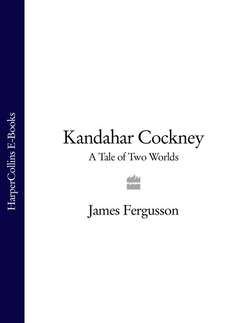Читать книгу Kandahar Cockney: A Tale of Two Worlds - James Fergusson - Страница 7
Prologue The Old Bailey, Winter 2002
ОглавлениеThe jury hadn’t deliberated for long enough. It was barely two hours since the judge had finished his summing-up and the court had risen for the lunchtime recess. The case was complex and serious. Surely they couldn’t have reached a verdict already? They had barely had time to digest their jury-room sandwiches. Lenora, the defence barrister, thought the Tannoy recall to the courtroom was probably due to some technical question they wanted to put to the judge. I’d had a chance to study the jurors over the previous week, and they seemed a responsible lot: six men and six women, eleven whites, one middle-class black in a poloneck. On the face of it you couldn’t ask for a better slice of citizenry. Two or three of them had taken copious notes during the trial. The oldest of them looked like an avuncular Guardian reader in his grey-collared cardigan and half-moon spectacles on a chain, a man who looked as though he had seen and got the point of Twelve Angry Men. We needed someone who could think for himself, an independent-minded liberal capable of countering the prejudices of the jury’s weaker members, someone who might object in principle to the judge’s one-sidedness. He looked like our Henry Fonda. With luck he might even be picked as the jury foreman. Surely such a man could not have missed the fact that in his summing-up the judge had spent a full hour on the prosecution’s case and just half an hour on the defence’s – could he?
There was little doubt that the trial had gone badly. Gulabuddin, diffident at the best of times, had performed so poorly in the dock that Lenora thought there must be a problem with the interpreter and had called for a replacement. The judge suspected this was just a ploy by the defence – a suspicion apparently confirmed when Gulabuddin’s answers continued to bear no relation to the questions put to him, questions that in the privacy of his lawyer’s chambers he had answered with the confidence of an innocent man. Nerves? An Afghan’s innate shame and shyness at talking about sex in public? It was hard to tell. Lenora worried that Gulabuddin had come across as morally dubious. The judge evidently thought so. I’d looked him up in Who’s Who and found him to be an Establishment man, a product of Harrow and Cambridge and a stalwart of the Law Commission, a respected body engaged in the reform of the law. He also seemed to be one of those clubland patricians with a kneejerk distrust of journalists of any kind. Even the prosecution counsel had privately observed to Lenora that he was very Old School. My stomach tightened at the memory of my own appearance as a character witness the day before. Like the BBC correspondent Lionel David I had been belittled, discredited, almost sneered at.
– Mr Fergusson, the judge had expostulated when I explained why I’d posted bail for the terrified creature in the dock: I believed him to be innocent. We are really not interested in your views. As a journalist of great experience, you know perfectly well that standing bail for someone has got nothing to do with their innocence or guilt. That is for the jury to decide; you know that.
I hadn’t banked on my testimony having an adverse effect on the case. The consequences of losing it were so appalling that the Afghans hadn’t even dared contemplate them. From the cramped public gallery I watched Gulabuddin stooping in the dock, flanked by yellow-shirted Securicor guards. He looked hopelessly out of place, a big man oddly diminished by the expanses of light oak and pompous Edwardian brass. He shifted his weight and smiled uncertainly back at me. It had been a bad idea after all not to get rid of his awful suit and dress him up in something smarter. The idea had been to present him as a respectable maths professor down on his luck, but in fact he looked more like the seedy sex-offender he was accused of being. His eyes were red and haggard, the bags beneath them dreadful proof of his weeks of fear and insomnia. He’d been crying quietly in the cafeteria during lunch. His cousin Mir, the Kandahar Cockney, this story’s starting point and the reason that I was here at all, was sitting in the row in front of me with his head between his knees and his fingers in his ears. Courtroom 17 was unusually small for the Old Bailey and had no separate public gallery, so that onlookers were escorted into the back of the courtroom itself. The tiny public benches were so like the pews of an English country church that Mir almost appeared to be praying. Then again, he probably was. If ever there was a moment to invoke the mercy of Allah, this was surely it.
The usher entered from a side door and whispered something to Lenora, who flinched and shot a sickly smile across the silent courtroom. It wasn’t a technical question: the jury were ready to deliver their verdict after all. She was as nervous as the rest of us now, her earlier bravado all gone. We stood as the jury filed in, radiating the gravitas of their task. We searched and searched their faces for a sign of their decision but they avoided eye contact with any of us.
